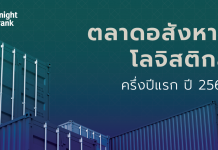The first civilian law to govern all economic activities in the government’s flagship Eastern Economic Corridor (EEC) is due to be submitted for final consideration by the National Legislative Assembly on Sept 28 and is likely to be implemented in October as planned, says Industry Minister Uttama Savanayana.
The anticipated law is expected to substantially increase confidence among foreign investors to kick off their real investment in the EEC. More than 30 Thai and foreign companies are projected to invest in the first stage, he said.
“Both Thai and foreign investors are waiting for this law to be implemented to really start of the EEC, which should help push Thailand to sustainable growth,” said Mr Uttama.
Moreover, the Board of Investment (BoI) is planning to grant another five years for a 50% tax cut for new investment, particularly in the EEC zone, said Duangjai Asawachintachit, deputy secretary-general of the BoI.
“The BoI is considering new measures to support investors both in an industrial sector in the EEC and in agriculture sectors since the BoI has been assigned the task of seeking ways to support agri-business and the farm sector,” said Ms Duangjai.
EEC is located in what was previously known as the Eastern Seaboard spanning in more than 30,000 rai the three eastern provinces of Chon Buri, Rayong and Chachoengsao.
The EEC is designed to accommodate new S-curve and 10 targeted industries: next-generation cars; smart electronics; affluent, medical and wellness tourism; agriculture and biotechnology; food; robotics for industry; logistics and aviation; biofuels and biochemical; digital; and medical services.
Japanese investors, who rank among the biggest group of nationalities to invest in Thailand, were among foreign investors who voiced concerns about the need for civilian laws to make sure that all policies to support investment in the EEC are long-lasting policies that will lend support to investors for years and will not be affected by any political changes, according to industry officials.
Mr Uttama said the ministry is working with the Education Ministry in setting up vocational training courses to help create a skilled workforce to meet rising demand in the EEC, where new investment into high-tech industries that need more skilled labour is expected.
He said he and a representative from the Education Ministry are due to inspect the EEC education zones this weekend in order to prepare for further educational training courses in the long term.
EEC Office secretary general Kanit Sangsubhan said the government is revving up investment in infrastructure projects, particularly the high-speed train to connect the EEC to Don Mueang, U-tapao and Suvarnabhumi airports as well as other regions of the country.
Other projects being accelerated are the deep-sea ports in Sattahip, Map Ta Phut and Laem Chabang.
Source : http://m.bangkokpost.com/business/news/1328859/eec-civilian-law-going-to-nla



















